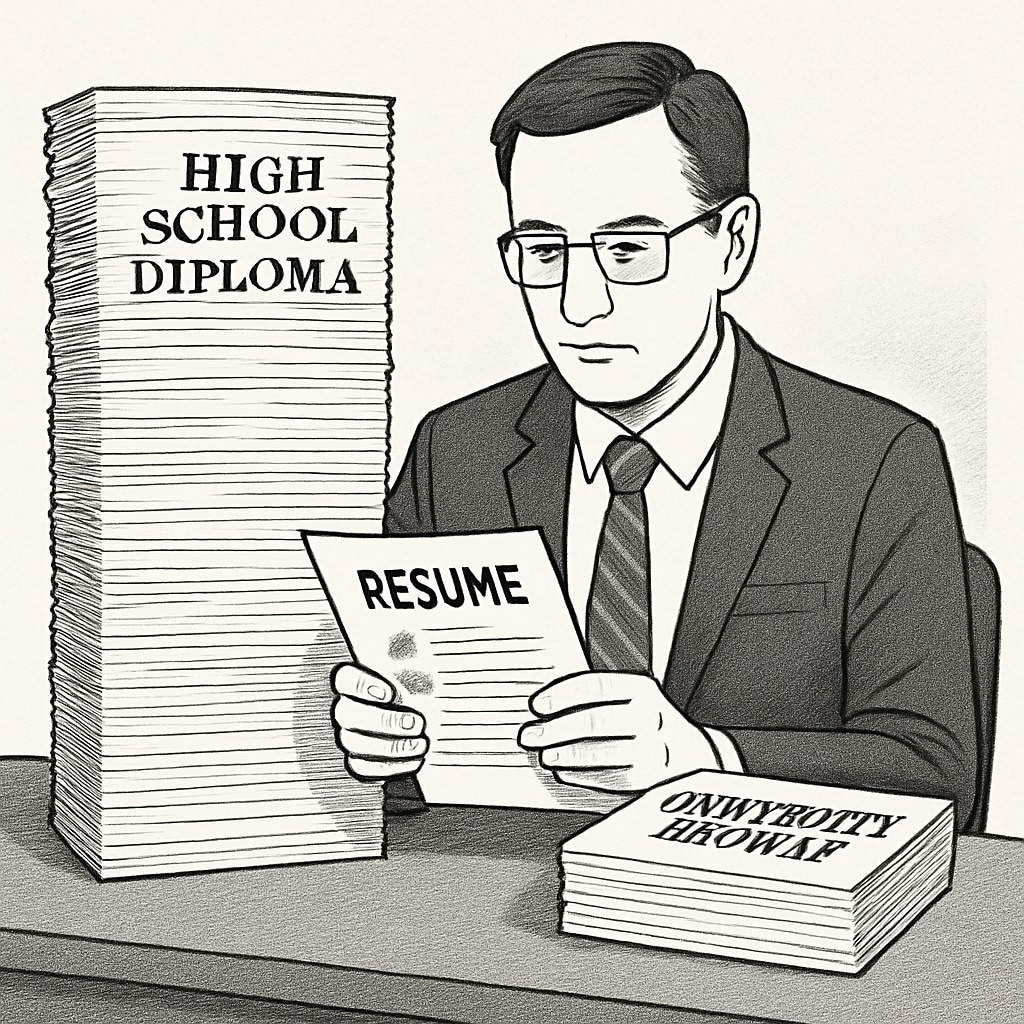The employment qualification system in Arizona has sparked significant controversy due to its peculiar emphasis on a high school diploma over advanced university degrees. This paradoxical requirement has raised questions about the disconnect between education credentials and job market demands. While higher education is traditionally perceived as a pathway to better opportunities, the current system sometimes disregards advanced degrees, leaving professionals wondering if their academic achievements hold any real value.

The Disconnect Between Education and Job Market Requirements
Arizona’s employment system highlights a striking misalignment between academic qualifications and job eligibility. For some state jobs, a high school diploma is a mandatory requirement, even when candidates possess advanced degrees such as bachelor’s, master’s, or doctoral qualifications. This creates a paradox where individuals with extensive knowledge and skills are deemed unqualified simply because their education surpassed the high school level.
For example, certain state positions require strict adherence to the “high school diploma or equivalent” criterion, without accommodating higher educational achievements. This rigidity raises several concerns:
- Devaluation of Higher Education: Candidates with university degrees may feel their efforts and investments in education are undervalued.
- Barriers to Career Advancement: Highly educated professionals are denied opportunities they are otherwise qualified for.
- Narrow Talent Pool: Restrictive requirements limit the availability of diverse, skilled candidates for roles.
This disconnect reflects a broader issue in how education is evaluated in the hiring process. Rather than focusing on practical skills or knowledge, the system often prioritizes rigid credentials, creating a bottleneck for qualified applicants.
Why High School Diplomas Still Dominate
The preference for high school diplomas in certain employment scenarios is rooted in outdated hiring practices. Historically, a high school diploma was seen as a baseline indicator of competency, discipline, and the ability to follow instructions. However, this standard may no longer align with the modern workforce’s needs, where advanced education and specialized training play a critical role.
Several factors contribute to the persistence of this requirement:
- Legal or Regulatory Constraints: Some positions are bound by state or federal regulations mandating specific credentials.
- Administrative Simplicity: Employers may use high school diplomas as a quick filter for applicants.
- Lack of Policy Updates: Outdated job descriptions fail to reflect contemporary job demands or alternative qualifications.
However, these justifications often fail to account for the diverse backgrounds of modern job seekers, many of whom bring unique skills and experiences that go beyond traditional credentials.

Building a More Inclusive Qualification Framework
A shift in perspective is necessary to address the limitations of Arizona’s employment qualification system. Employers and policymakers must recognize the evolving nature of education and its relationship with the workplace. Here are some potential solutions:
- Adopt Skills-Based Hiring: Focus on candidates’ skills, experiences, and competencies rather than rigid educational requirements. This approach is already gaining traction in forward-thinking organizations.
- Update Job Descriptions: Regularly review and revise job qualifications to reflect current industry standards, including accommodating diverse educational backgrounds.
- Implement Equivalency Options: Allow advanced degrees to fulfill requirements traditionally met by high school diplomas, acknowledging the value of higher education.
- Foster Employer Awareness: Educate hiring managers on the limitations of strict credential requirements and the benefits of inclusive hiring practices.
By embracing these changes, Arizona can create a more equitable and dynamic job market that values all forms of education and expertise.
Conclusion: Rethinking Education in Employment
The paradox of employment qualifications in Arizona underscores the need for a systemic overhaul. Valuing higher education achievements while maintaining accessible entry points for all job seekers is not mutually exclusive. By aligning qualifications with the realities of modern work, Arizona can build a fairer, more inclusive employment landscape. As a result, job seekers with diverse educational backgrounds—whether they hold a high school diploma or multiple university degrees—can find opportunities that match their skills and ambitions.
The question remains: will policymakers and employers rise to the challenge of rethinking outdated educational requirements? The future of an inclusive workforce may depend on it.
Readability guidance: The article uses short paragraphs and clear lists to improve readability. Transition words like “however,” “therefore,” and “for example” are used throughout to maintain logical flow. Passive voice and overly long sentences are minimized for clarity.


